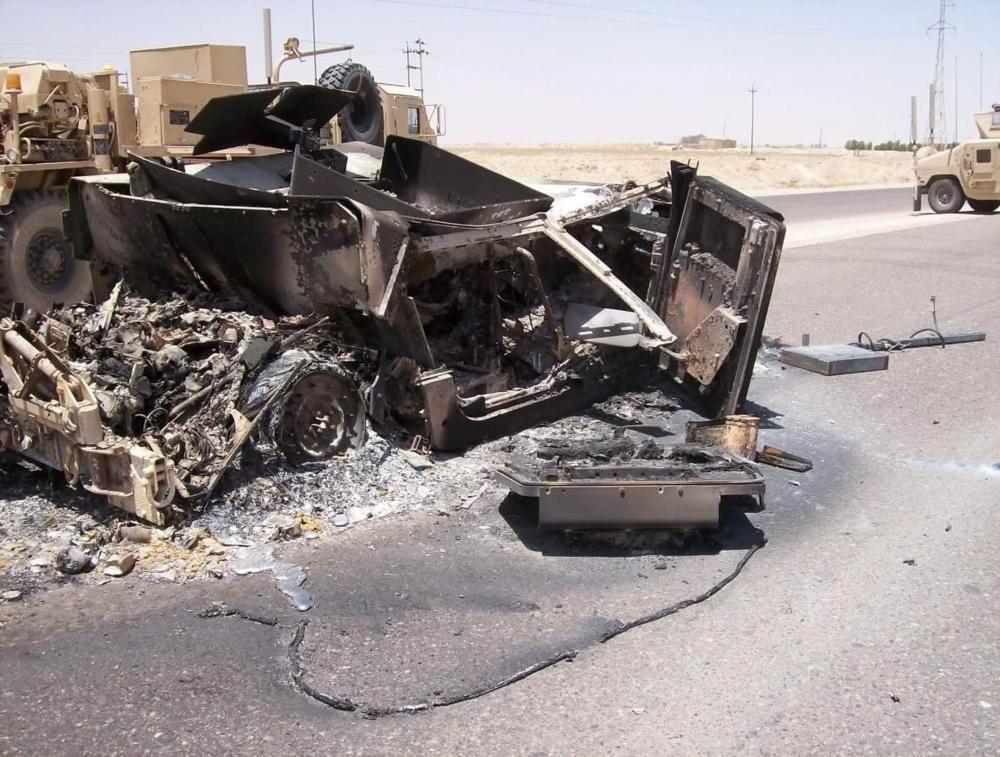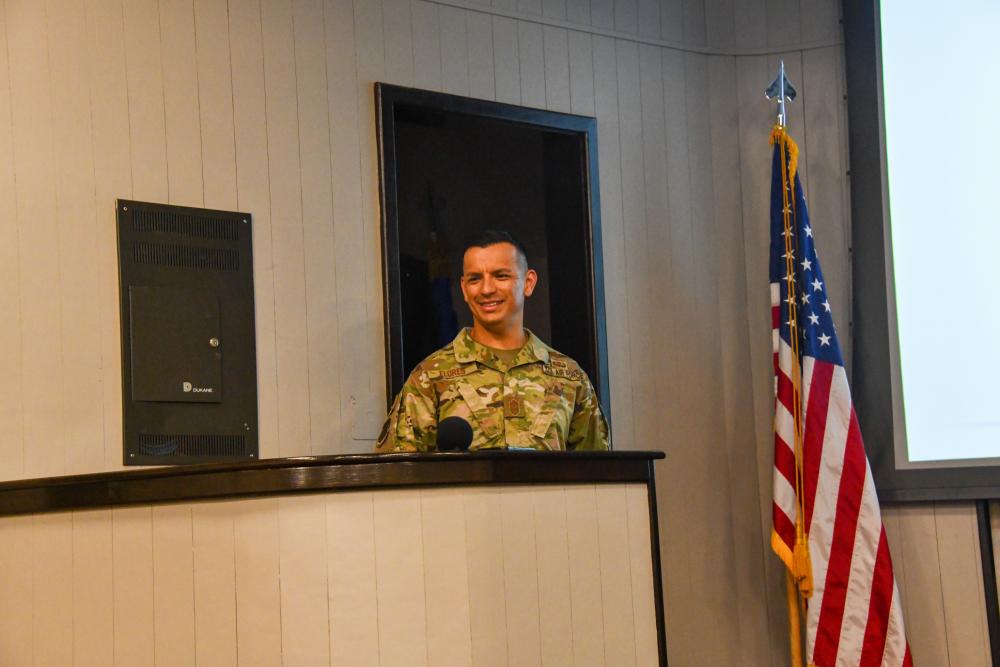The strangest things can happen in war, as Air Force Staff Sgt. Cesar Flores found out personally from the seat of a Humvee near Camp Bucca in southern Iraq 15 years ago. It was June 15, 2007, and Flores was part of a security forces convoy — the Air Force equivalent of military police — clearing the roads outside Camp Bucca of improvised explosive devices so that other convoys could get to the base safely.
“Convoys weren’t the most dangerous mission. It was to go patrol the roads before they got there. That was the most dangerous mission,” Flores said in a recent press release written by Airman 1st Class Miyah Gray. “We were driving and a berm just went off. When the blast hit us, it knocked me unconscious.”
What happened next not only saved Flores’ life, it also taught him a valuable lesson in leadership, which was why the airman shared his story with a group of colleagues at the 97th Air Mobility Wing, at Altus Air Force Base, Oklahoma earlier this month. Now a chief master sergeant, the highest enlisted rank in the service, Flores reminded listeners to get to know their airmen and accept that there are many ways to be a leader. Another airman seemed to agree with Flores.
“Once you get to know someone and make a connection, you’re able to forge a better relationship with them,” said Tech. Sgt. Michael Voorhees, 97th Training Squadron student affairs noncommissioned officer in charge. “Where that impacts the most is going to be when you get into stressful situations, particularly under fire, and you can rely on them because you’ve built them that foundation of trust.”
Flores learned that lesson the hard way when he met Senior Airman Duane Dunlap during his 2007 Iraq tour. Dunlap was the gunner of Flores’ patrol group, but the two often butted heads.
“He and I did not get along at all,” said Flores. “He tended to question everything. Back then, my one way of leading was to get in line or get off the bus, so we did not jive well.”
Subscribe to Task & Purpose Today. Get the latest in military news, entertainment, and gear in your inbox daily.
Camp Bucca was no cakewalk. The base was at one point the largest U.S.-run prison facility in Iraq, holding 13,000 of a total of 19,000 detainees held at American facilities in the country, according to the BBC. On June 9, less than a week before the IED that hit Flores’ convoy went off, six prisoners were killed and at least 50 wounded when the base was hit by indirect fire. Many of the future leaders of the so-called Islamic State, including the group’s first caliph, Abu Bakr Al-Baghdadi, started sharing ideas and networking behind the camp’s walls. Ironically, it was Flores and his fellow airmen’s job to help guard the base that held these men. Against this backdrop, Flores’ relationship with Dunlap got so bad that Flores “couldn’t stand” Dunlap and “was about to fire” him.
But then the IED went off, and Flores woke into a nightmare.

“When I regained consciousness, it was hell on earth,” he said. “I was literally on fire. I smelled what I believe was white phosphorus. I heard someone screaming. It was Duane.”
The explosion had caved in Flores’ door, pinning him to his seat. His weapon had also melted, so he was defenseless. The airman called for help, and he was surprised by who answered.
Dunlap “had the presence of mind to grab me by the body armor and just pull until I came out of there and we were both laying down in the middle (of the vehicle),” Flores said.
Flores crawled to the back of the Humvee, opened the rear door and rolled out, followed shortly after by Dunlap. Flores was covered with blood, but he soon realized it was not his own: it was Dunlap’s.
“He got hit by a piece of shrapnel the size of a baseball to his leg and still had the presence of mind to pull me out of my predicament,” Flores said.

Another airman went on to clear the road on foot, a mortal risk if another IED went off, Flores explained. Meanwhile, a fourth airman with “combat lifesaving experience,” tended to Dunlap’s wounds. The gunner was medically evacuated to Germany and then to the Brooke Army Medical Hospital in Fort Sam Houston, Texas, leaving Flores with a valuable lesson.
“Duane Dunlap, the kid that I was about to fire, that I couldn’t stand, ended up saving my life and being my angel in disguise,” said Flores, who later received a Purple Heart for the attack that day 15 years ago.
“I never took the time to know him past our trained duties and this became the primary reason I never really gave him a shot,” he added. “A tech sergeant select, high-speed leader not knowing their airman. That was embarrassing … someone that I didn’t think much of ended up being the reason why I can see my [family] every day.”
The latest on Task & Purpose
Want to write for Task & Purpose? Click here. Or check out the latest stories on our homepage.
